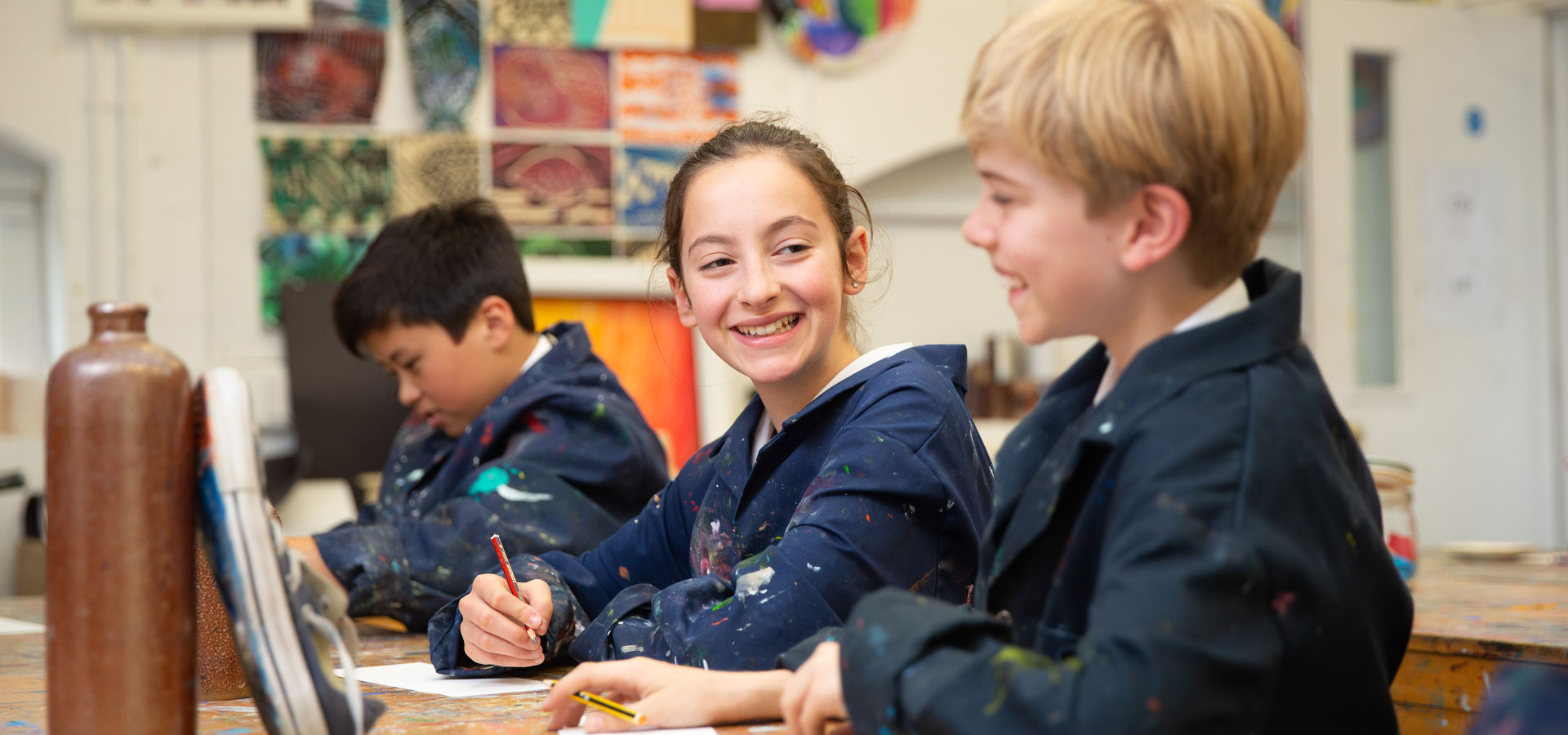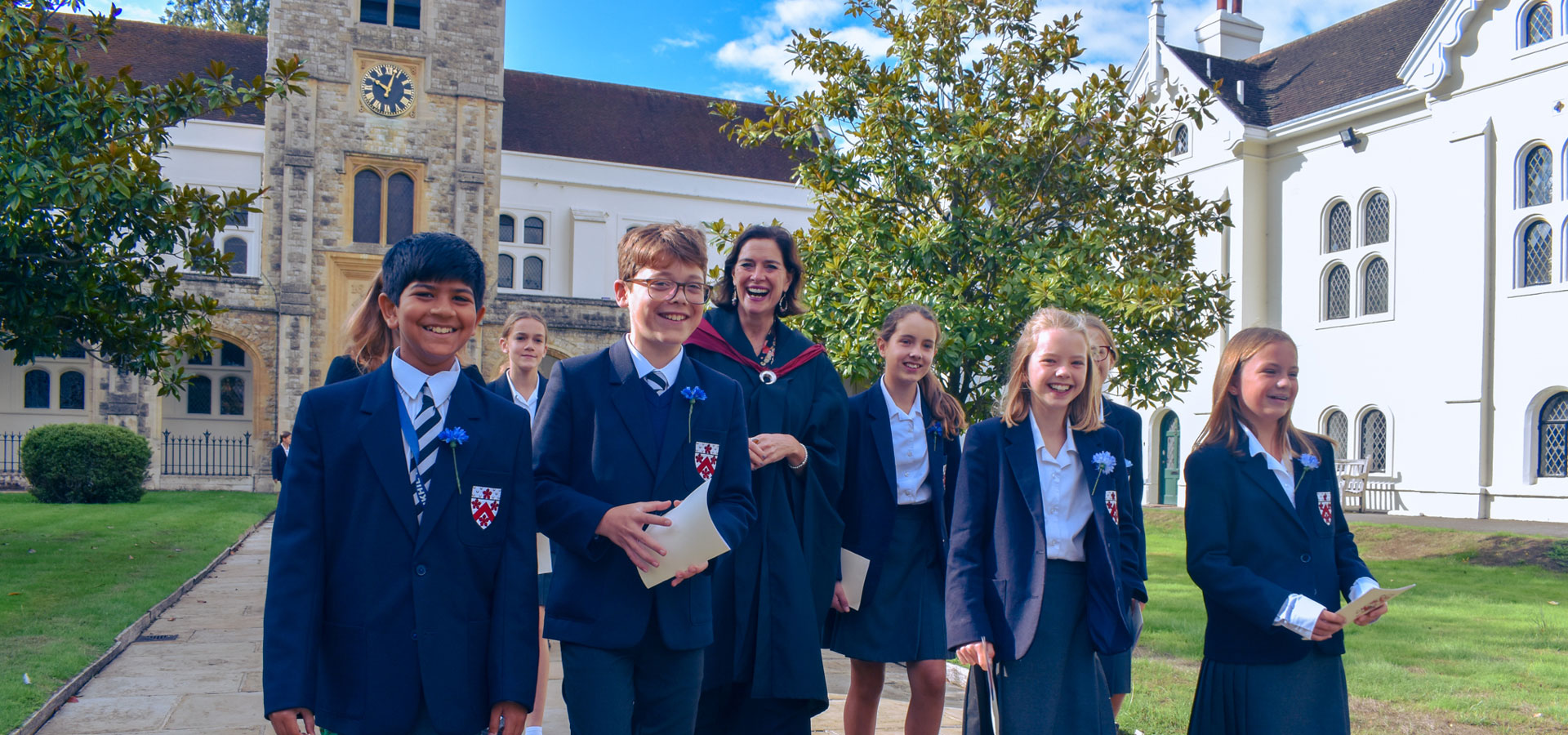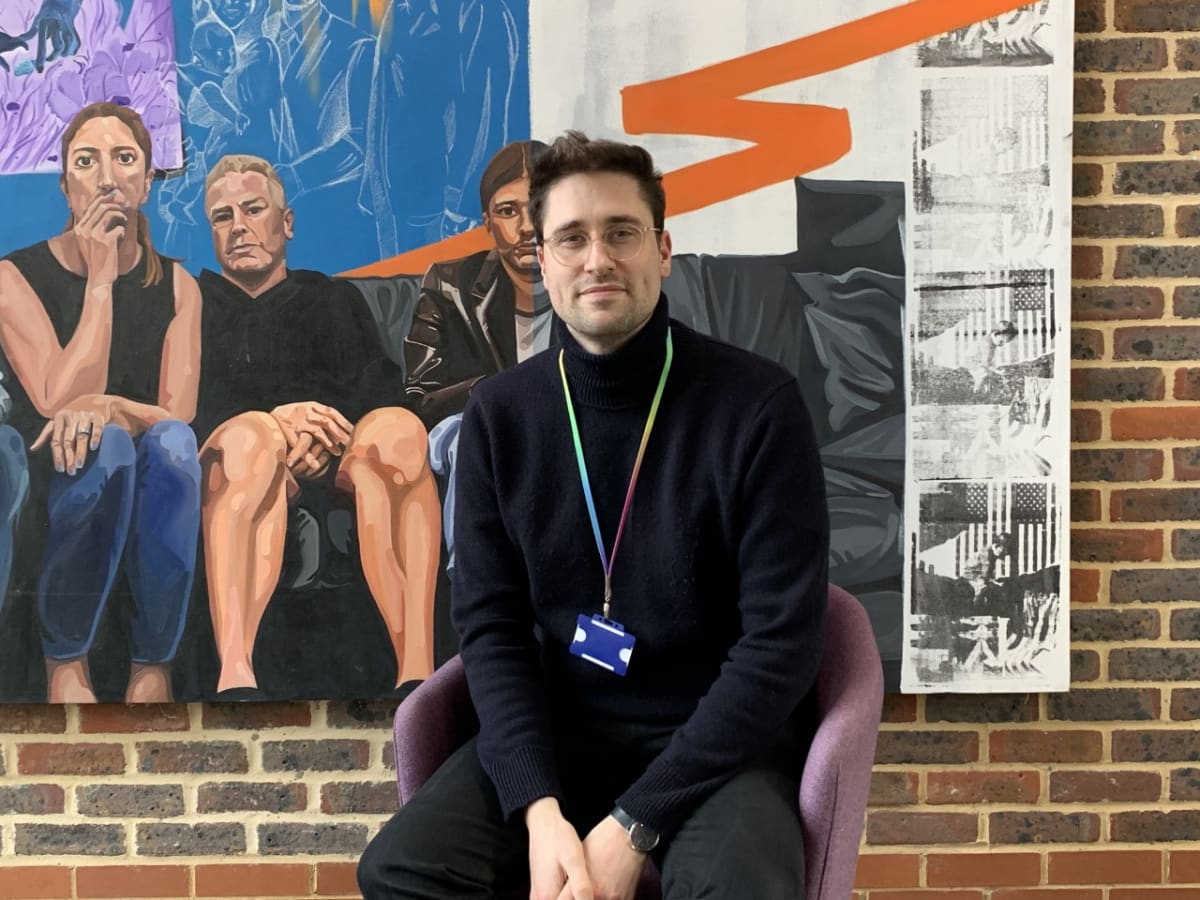In the wake of a new brand of influencers pedalling misogynistic ideology, Alleyn's Head of PSHE, Will Howell-Harte, offers five tips on talking to your child about misogyny.
Rippling abs, sexually available women, fast cars, piles of cash, guns and fat cigars: it sounds like the revival of a Hollywood franchise but for the new brand of influencers pedalling misogynistic ideology this is just part of the brand.
Their views are abhorrent. Sometimes they claim what they have to say is just a joke or ‘tongue in cheek’. Sadly, the ‘glamorous’ lifestyle of misogynistic influencers appeals to many young people, a sign not just that their offensive ideas might hold some truth but that could be the root to living a successful life.
The perceived success of figures encouraging harmful beliefs coupled with the impressionability of ‘insecure’ young people has made many ‘vulnerable [to the] persuasive narratives’ of extreme misogynists. Modern society has faced increasing numbers of children feeling isolated and adrift, critical of the ways of others and uncertain in themselves.
In this world, a clear voice telling you what to believe, what to think and how to behave (and seemingly living the TikTok dream) holds vast power. That is, so long as you aren’t one of the people they speak out against.
As you know, at Alleyn’s we have no tolerance for misogyny or any other form of prejudice. However, this problem has become so much bigger, and we need to actively challenge and resist misogyny and all other forms of prejudice as a community and as a society.
But where to start?
Showing understanding
Counterintuitively, to combat misogyny we need to approach this conversation with respect and understanding for those who have been seduced by this harmful content. Only by consistently providing a supportive environment with a focus on inclusion and belonging can we hope to address the powerful hold of these unacceptable beliefs and behaviours. Given that many misogynist influencers gained traction in the vacuum of alienation in today’s society, we should aim to ‘invite people in’ to the discussion rather than start by ‘calling them out’ and deepening their distrust of alternative narratives.
In school, there will always be clear, consistent action and consequences, both disciplinary and restorative. We encourage any pupils to come forward and discuss their experiences with a trusted adult in school like a tutor, head of house or head of year.
Start conversations with your child in an open way: ‘what do you understand by the term misogyny?’; ‘what problems are there with people holding these views?’; ‘do you know of anyone who has been a victim of misogynistic abusive language or actions?’. It might seem like a basic starting point, but, if your child is in one of the earlier years at Alleyn’s or you’re not used to having these conversations with them, starting at a simple point of understanding could help avoid any misconceptions.
If they say something that you don’t agree with, keeping calm and asking them to explain further is going to be a better tactic than shutting down the conversation entirely.
Avoid focussing on specific influencers
Obviously, this blog post comes at a time of renewed awareness and vigilance around misogyny and sexual violence. These messages have been communicated by influencers on social platforms but have also taken more subtle and insidious forms: gamers filming demonstration videos for the likes of YouTube have been banned from platforms for their use of hate speech, proving that what might sometimes seem like innocuous (even dull) videos can be peppered with harmful content.
By avoiding the names of specific influencers, websites or groups, we avoid promoting them further (promotion after all is the core of their business model and central to their online presence). Equally, by avoiding making this a one-topic conversation and addressing offensive discourse over the longer term, we will also teach a lasting lesson about how to identify harmful, hate-filled content they have not yet come across.
Taking the long view and addressing the core problem will hopefully future-proof them from further toxicity.
Encourage digital literacy
Understanding how social media platforms work is a key part of our KS3 PSHE curriculum. This is gradually developed to include how to navigate online relationships as pupils move up through the school. Relationship and sex education (RSE) is embedded in our PSHE curriculum in line with statutory guidance designed to combat these values and beliefs. We work closely with external providers, ItHappens, to support our discussions of gender equality. We continue open and collaborative discussions with pupils across all years through the Alleyn's Equality Charter and have a flourishing FemSoc that devotes their time to discussing key topics relating to gender in school and the wider world.
At home, you can remind them of the work they’ve already done but perhaps it would be beneficial to have an open discussion of how news stories are manipulated using emotive language to appeal to our base instincts rather than convey fact. You can also talk about the differences between appearance and reality – the darker backstory of some of these influencers has certainly revealed the seedy underbelly of the glamourised picture many project.
ANY hate speech normalises ALL hate speech
Hostility towards minority groups perpetuated by media outlets, algorithms and online communities damages the fabric of society. Be it the home secretary’s refusal to apologise to a holocaust survivor for her divisive rhetoric vilifying migrants or the polarising language surrounding the rights of transgender people on both sides of the Atlantic, by denigrating one group of people or championing one over another we are contributing to the normalisation of hate speech. This is a matter of equality and it has to stop.
Sometimes young people say or write things without fully thinking about how their words could be construed. This is the exact point at which pupils have to be constructively challenged about what they have said and encouraged to reassess how others might perceive a comment that has been made.
Only through cultivating combined literacy and empathy can we break down the cycle of low-level abuse which underscores hatred.
Avoid boy shaming
Misogyny hurts everyone. Regardless of gender or sexual orientation there are no ‘winners’ when these attitudes are allowed to flourish. Young women are threatened by harassment and abuse because of it. Young men are emotionally and psychologically damaged by it.
Everyone needs to have a clear understanding of what is the right and wrong way to treat someone. But there is also an opportunity for education. The resurfacing of this topic, by no means a new one, is a timely reminder that our work towards creating an equal society is, and will always be, a work in progress. We all need to own our part in that work.
For further information on misogynist influencers including details of specific figures like Andrew Tate and Jordan Peterson, you can listen to this excellent podcast which also contains advice on information on how to approach this issue.



.jpg)

.jpg)






















